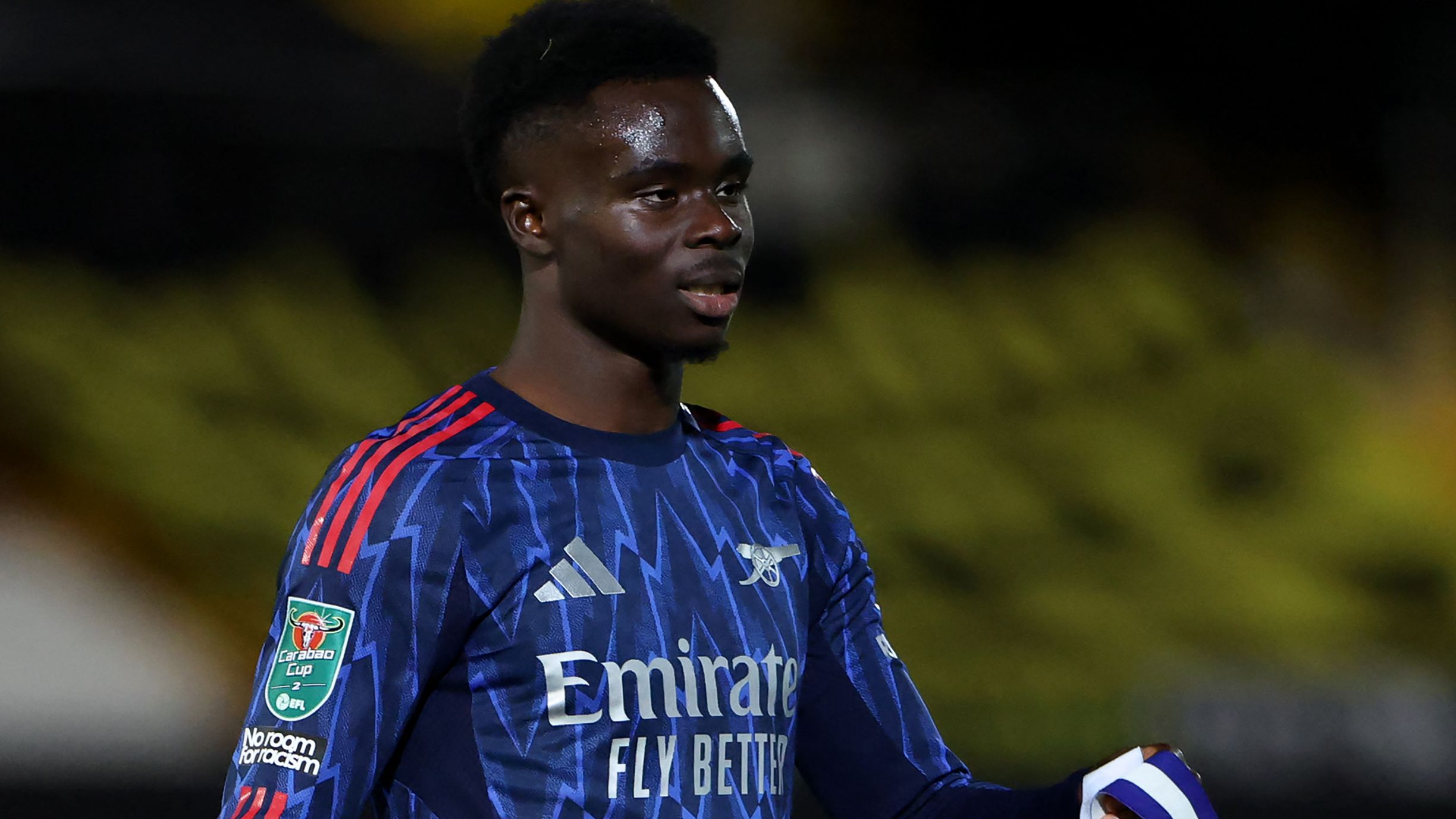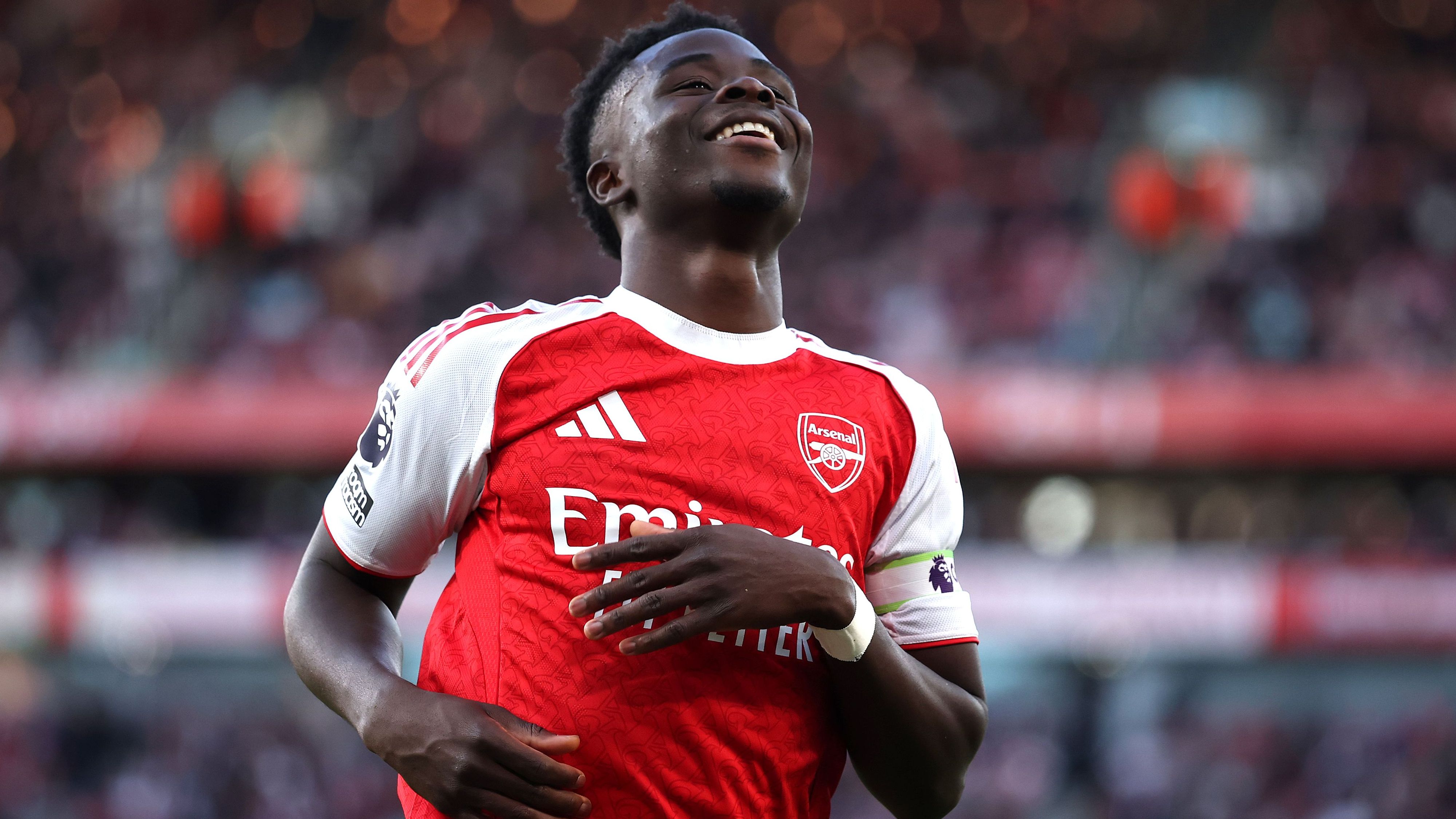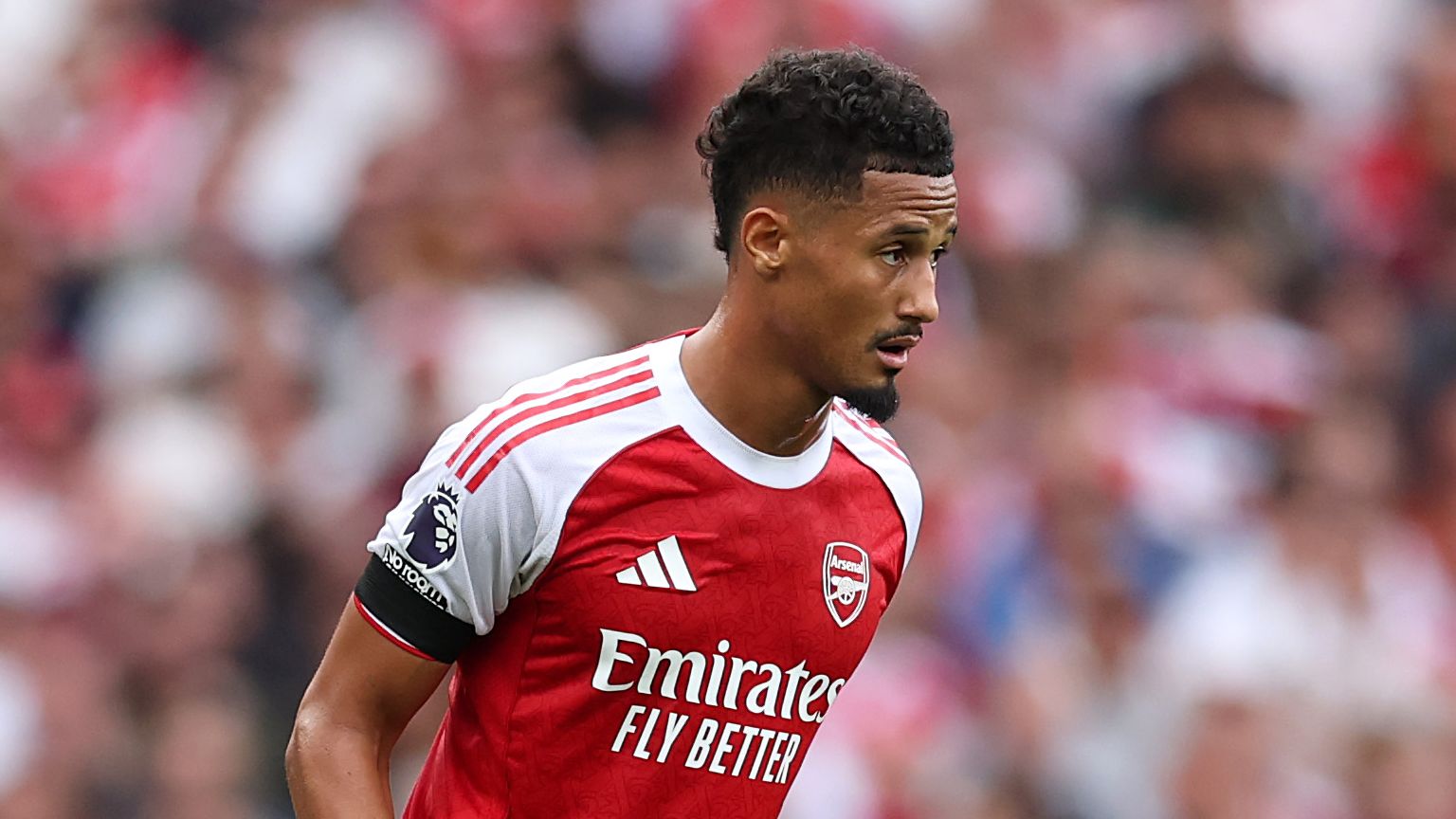


Unveiling the Strategy Behind Saka’s Early Exit in Arsenal’s Thrilling Cup Victory
In a match that kept fans on the edge of their seats, Arsenal’s Bukayo Saka and manager Mikel Arteta navigated a tense moment that raised eyebrows across the football world. This piece dives into the reasons for the young star’s substitution, highlighting the careful balance between player health and team performance during a demanding season.
Arsenal’s Dominant Display and Key Moments in the Carabao Cup Clash
The team kicked off with an ideal opening as their fresh recruit Eberechi Eze netted his inaugural goal for Arsenal merely eight minutes into the game. Although they controlled the ball throughout, the side found it challenging to secure a comfortable lead until Leandro Trossard delivered the decisive strike in the 86th minute. On the wing, Saka appeared dynamic and effective in offensive plays, yet the spotlight shifted when he was tackled forcefully soon after the break. Following brief medical attention, he played on briefly, but Arteta quickly opted to remove him from the field.
Saka’s Return from Injury and the Substitution Decision
Having recently recovered from a hamstring issue that kept him out of three prior games, Saka showed signs of discomfort before being swapped out in the 63rd minute for the talented 15-year-old Max Dowman. Post-match, Arteta eased supporter concerns by clarifying that no new injury occurred and that the substitution was pre-planned to limit Saka’s involvement to around 60 minutes, as a key part of his gradual reintegration strategy.
Arteta’s Post-Match Insights on Managing Saka’s Minutes
In his comments to Sky Sports, Arteta explained: “It was predetermined from the start. We aimed for no more than 60 minutes for him; the schedule is packed ahead. With his recent significant recovery, we’re focused on controlling his exertion levels. He’ll be available for the upcoming weekend games, absolutely.”
Navigating Arsenal’s Ongoing Injury Challenges
While relief surrounds Saka’s situation, Arsenal’s medical facility at London Colney is still bustling with recoveries. Defender William Saliba has returned for his second appearance in a week following an ankle problem, and captain Martin Odegaard is steadily working through shoulder rehab. Further complicating matters, new addition Noni Madueke, brought in from Chelsea to enhance the flanks, is now sidelined for up to eight weeks due to a knee setback, further straining the squad’s depth amid a congested fixture list.
Looking Ahead to the Newcastle Showdown
The focus now shifts to the upcoming encounter with Eddie Howe’s Newcastle on Sunday, a team riding high after their commanding cup triumph over Bradford City. Newcastle’s home ground, St James’ Park, poses a formidable challenge, and Arteta will rely on his top performers being in peak condition to secure a win and maintain pressure on frontrunners Liverpool, who have hit the ground running in the Premier League race.
The Match Overview
In the high-stakes world of the Carabao Cup, Arsenal’s victory against Port Vale highlighted not just their tactical prowess but also the ever-present concern of player injuries. Bukayo Saka, the young English winger who’s become a cornerstone of Arsenal’s attack, was taken off the pitch during the game, sparking immediate worry among fans and analysts alike. Mikel Arteta, Arsenal’s head coach, addressed the situation head-on, emphasizing injury concerns as the primary reason for the substitution. This move was crucial in protecting Saka’s long-term health, especially given his packed schedule with both club and country.
Key Highlights from the Arsenal vs. Port Vale Clash
Arsenal’s performance in the Carabao Cup tie against Port Vale was a mix of dominance and caution. The Gunners secured a comfortable win, advancing to the next round with goals that showcased their depth in squad rotation. Saka’s early exit, however, became a talking point, as injury worries in football can quickly shift the narrative from celebration to concern.
- Saka’s Contributions Before Substitution: Bukayo Saka was instrumental in the opening stages, using his pace and precision to create scoring opportunities. He assisted in a key buildup that led to Arsenal’s first goal, demonstrating why he’s one of the most talked-about young talents in the Premier League.
- The Exact Moment of Substitution: Around the 60th minute, Saka signaled discomfort, prompting Arteta to make the call. This decision prevented any potential aggravation, a smart move considering Saka’s history of injury setbacks in previous seasons.
- Arsenal’s Overall Victory: The team cruised to a 3-0 win, with other players stepping up to fill the void, proving the squad’s resilience even when key players like Saka are sidelined due to injury concerns.
Mikel Arteta’s Explanation of Saka’s Substitution
Mikel Arteta has been vocal about prioritizing player welfare, and his post-match comments on Saka’s substitution provided much-needed clarity. Arteta explained that the decision was purely precautionary, rooted in the visible signs of discomfort from Saka during the game. In a briefing, he noted, “We couldn’t risk it with Bukayo; he’s too important to us, and we’re always monitoring injury risks closely.”
What Exactly Did Arteta Say?
Arteta’s remarks were detailed, focusing on the specifics of Saka’s condition without alarming fans. He revealed that Saka had reported tightness in his hamstring, a common injury concern among fast-paced wingers in the Premier League. This transparency helps build trust and keeps the Arsenal community informed about player health updates.
- Direct Quotes from Arteta: In interviews, Arteta stated, “It was clear Bukayo wasn’t at 100%, so we decided to substitute him to avoid any long-term issues. Injury management is key in modern football, especially for a player like Saka who’s in demand every week.”
- Context Behind the Decision: Arteta highlighted how Saka’s substitution was influenced by his recent international duties, where he played full matches for England. This accumulation of minutes can lead to fatigue and increase injury risks, making the Carabao Cup game a perfect opportunity for rest.
- Strategy for Future Games: Arteta mentioned plans to rotate the squad more carefully, ensuring that stars like Saka get adequate recovery time. This approach is vital for maintaining Arsenal’s competitive edge in multiple competitions.
The Potential Implications for Saka’s Injury and Recovery
Injury concerns for a player like Bukayo Saka can have ripple effects on his performance and Arsenal’s season. Saka has been plagued by minor injuries in the past, which Arteta is keen to prevent from escalating. Experts suggest that early substitutions, as seen here, are a proactive way to manage such issues.
- Types of Injuries Saka Might Be Facing: Hamstring strains are a frequent injury concern for agile players like Saka, often resulting from sudden sprints or directional changes. Symptoms include tightness and pain, which can worsen if not addressed promptly.
- Recovery Timeline and Arsenal’s Approach: Based on Arteta’s comments, Saka could be back in action within a week or two, depending on medical assessments. Arsenal’s medical team is likely using advanced techniques like physiotherapy and rest to expedite recovery, a standard practice in elite football clubs.
- Broader Impact on Team Dynamics: Without Saka, Arsenal might rely more on wingers like Gabriel Martinelli or Leandro Trossard, testing the squad’s depth. This substitution highlights how injury management influences team selection and tactics in the Premier League.
Injury Management Strategies in Football
Football managers like Mikel Arteta often emphasize injury prevention as a core part of their strategy, especially in cup competitions like the Carabao Cup. Understanding how teams handle such situations can provide valuable insights for fans and aspiring coaches.
Best Practices for Handling Player Injuries
Effective injury management involves a combination of science, experience, and quick decision-making. Arteta’s handling of Saka’s case exemplifies these principles.
- Monitoring Player Workload: Clubs use data analytics to track how many minutes players like Saka log, helping to identify when they’re at higher risk for injuries. For instance, reducing Saka’s playing time in less critical games can prevent burnout.
- On-Field Decision Making: Coaches are trained to spot early signs of distress, such as altered running patterns, which Arteta did during the Port Vale match. This immediate action can mean the difference between a minor tweak and a season-ending injury.
- Post-Match Protocols: After substitutions, teams implement recovery plans that include rest, nutrition, and rehab sessions. Arsenal’s setup, as implied by Arteta, likely involves cutting-edge facilities to ensure players return stronger.
Why This Matters for Arsenal Fans
For those following Arsenal closely, Saka’s substitution serves as a reminder of the fine balance between ambition and player health. Discussions around injury concerns in football often lead to debates on fixture congestion and the need for better scheduling in leagues like the Premier League.
Fan Reactions and Expert Analysis
Social media buzzed with fan reactions to Arteta’s explanation, with many appreciating the proactive approach. Experts, meanwhile, pointed out how this incident underscores the importance of squad rotation in maintaining long-term success.
- Pros of the Substitution: It protects Saka’s value to the team and could prevent more serious issues, allowing him to contribute effectively in bigger games.
- Cons and Potential Risks: If Saka’s injury lingers, it might affect Arsenal’s performance in upcoming Premier League matches, highlighting the challenges of injury concerns in a demanding season.
By staying informed on topics like this, fans can better appreciate the nuances of football management and the human element behind the sport. This level of detail not only keeps you engaged but also helps in understanding how decisions like Arteta’s shape the game’s outcomes.









